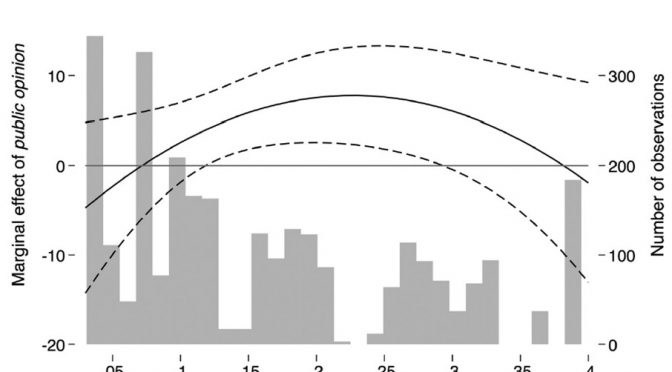Several studies have reported a relationship between governments’ behaviour in the EU Council and public opinion. However, doubts remain about which mechanisms drive this relationship. We argue that governments align their behaviour with public opinion to forestall future electoral sanctions (rational anticipation). To test this, we deduce hitherto untested observable implications of rational anticipation which suggest that governments’ responsiveness to public opinion depends on national-level electoral competitiveness. Using DEU modules I-III and an original empirical measure of electoral competitiveness, we ascertain whether governments adjust their responsiveness as: (1) the expected time period to upcoming elections decreases, and (2) the probability of losing their position in the party system in the next election changes. Our results provide evidence that government parties rationally anticipate risks related to their position in the party system but not to early elections. These findings have implications for our understanding of representation in the Council.
Franchino F, Kayser MA and Wratil C (2022) Electoral competitiveness and responsiveness: rational anticipation in the EU Council. Journal of European Public Policy 29(1). Routledge: 42–60. DOI: 10.1080/13501763.2021.1991986.
